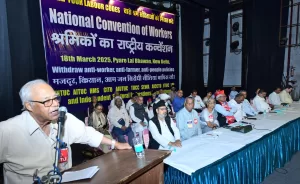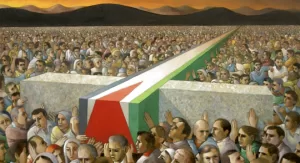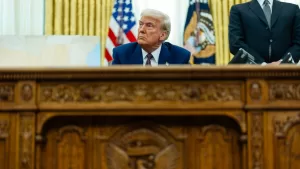The world has become more unequal in income and wealth in the last 40 years. That’s according to the World Inequality Report 2022. Produced by the World Inequality Lab, run by Thomas Piketty and a group of over 100 analysts from around the world, the report has the most up-to-date and complete data on the various facets of inequality worldwide: global wealth, income, gender and ecological inequality.
The report shows how in 2021, “after three decades of trade and financial globalisation, global inequalities remain extremely pronounced… about as great today as they were at the peak of Western imperialism in the early 20th century.” Although the World Inequality report found inequalities between nations had declined since the end of the cold war (mainly due to the rise in living standards in China), it said inequality had increased within most countries and had become more pronounced as a result of the global pandemic over the past two years.
The global concentration of personal wealth is extreme. According to the WIR, the richest 10% of adults in the world own around 60-80% of wealth, while the poorest half have less than 5%.
This is a similar result to the other important survey of global inequality of wealth produced each year by Credit Suisse. That report finds that just 1% of adults in the world own 45% of all personal wealth while nearly 3bn people own nothing. Wealth inequality is much higher than income inequality – something I have reported on before.
But income inequality is still very high. The WIR finds that the richest 10% of the global population currently takes 52% of global income, compared with just an 8% share for the poorest half. On average, an individual from the top 10% of the global income distribution earned $122,100 (£92,150) a year in 2021, whereas an individual from the poorest half of the global income distribution makes just $3,920 a year, or 30 times less!
Indeed, the share of income presently captured by the poorest half of the world’s people is about half what it was in 1820, before the great divergence between western countries and their colonies. In other words, the rise of imperialism as the ‘latest stage’ of capitalism has delivered increased inequality of income globally. The personal income share of the poorest 50% of the world’s adults or around 3bn people is half what it was in 1820! So much for even and combined development after 200 years of capitalism.
Back to wealth, the WIR notes that while “Nations have got richer — governments have got poorer”. Wealth, both tangible and financial, is not held commonly at all. “Over the past 40 years, countries have become significantly richer, but their governments have become significantly poorer. The share of wealth held by public actors is close to zero or negative in rich countries, meaning that the totality of wealth is in private hands.” As lead author for the report, Lucas Chancel from the Paris School of Economics, put it: “What we need to increase equality, combat the climate emergency and create the conditions for a good life for all is private sufficiency and public luxury, but the opposite has been happening.”
In the 21st century the inequality of wealth has risen significantly. Indeed, the wealth of the 50 richest people on earth increased by 9% a year between 1995 and 2001, with the wealth of the richest 500 rising by 7% a year. Average wealth grew by less than half that rate, at 3.2% over the same period. Since 1995 the top 1% took 38% of all additional global wealth in the last 25 years, whereas the bottom 50% captured just 2% of it. The rise of the so-called middle class income group in the graph below is mostly due to China’s reduction of poverty levels.
The top 0.01% of adults increased their share of personal wealth from 7.5% in 1995 to 11% now. And billionaire population increased their share from 1% to 3.5%.
The last two years of the pandemic have only accelerated inequality. During the first waves of the Covid-19 pandemic, global billionaires’ wealth grew by $3.7 trillion. According to Chancel, this amount is “almost equivalent to the total annual spending on public health by all governments in the world before the pandemic — approximately $4-trillion.” (Total spending on health from all sources was $7.8-trillion in 2017 according to the WHO). But in the same period, 100 million more people around the world have been thrown into extreme poverty as a result of Covid.
And it is the rich that make the most carbon emissions (through transport and travel) and reap the most of the benefits of the vaccines to avoid disease or death.
Both the COVID pandemic and climate change are increasing the share going to the already rich. Lucas Chancel: “Global economic inequality fuels the ecological crisis and makes it much harder to address it. It’s hard to see how we can accelerate efforts to tackle climate change without more redistribution of income and wealth”. All the international agencies dealing with clmate change and the pandemic agree with Chancel. Tedros Adhanom Ghebreyesus, WHO Director-General, told a Special Session of the World Health Assembly, that: “Global health security is too important to be left to chance, or goodwill, or shifting geopolitical currents, or the vested interests of companies and shareholders.” And last week, a group of nearly 40 UN Special Rapporteurs issued a statement saying that “addressing the health crisis equitably must take priority over profit maximisation by corporations and vaccine hoarding by high-income countries.”
But nothing will be done to address these inequalities of wealth, income and health.
(Michael Roberts has worked in the City of London for over 30 years as an economist. He is author of several books on the world economy: The Great Recession, The Long Depression and World in Crisis. Courtesy: Michael Roberts blog.)




